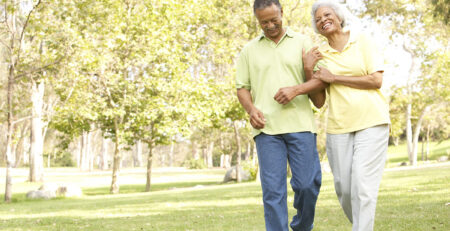5 Steps to Healthy Aging
We are all growing older by the minute – it’s just a fact of life. And as we age, there will be new challenges to face like making career transitions, retiring partially or fully, watching our children leave for college or move out on their own, losing friends and loved ones along the way and dealing with some health issues. Despite such challenges, we can continue to grow, flourish, and enjoy life satisfaction. Here’s how.
Step 1: Find Your Methods of Coping
Change will come and there will always be sources of stress to deal with. The difference between someone aging poorly and another living life to its fullest comes down to the coping mechanisms you have and how well and often you utilize them. To better cope with change, focus on the following:
- Be proactive and take on challenges every day
- Always find the positive in life, even during tough times
- Practice the attitude of gratitude
- Be honest and open about how you feel and think
Step 2: Create Your Own Joy and Meaning
My mother always told me “You make your own happiness”. She was right. Abraham Lincoln said “We’re just about as happy as we make up our minds to be”. He was right as well. To age well, we need to continually work on ourselves and find joy and meaning in life, because they are truly all around us. Try doing the following:
- Learn something completely new
- Travel somewhere you’ve never been
- Bring back old hobbies that brought you enjoyment
- Become engaged in your community
- Become connected with nature
- Immerse yourself in the arts
Step 3: Stay Socially Connected
Older adults who stay home all day and don’t engage with their peers, family, friends or their community, probably aren’t aging all that well. Although we may lose people in our lives, there are ways to remain socially connected.
- Stay in touch with whomever you can
- Volunteer at nursing homes, churches, or businesses that need some help
- It’s never too late to make new friends or start new relationships
- Use technology to connect but don’t forget to spend time with people face-to-face
Step 4: Keep Moving
Our bodies were not meant to be stationary. There was no point throughout human history where people weren’t hunting, gathering, or running for their lives! The human body is a machine that needs to keep humming. Remember the old saying “Use it or lose it”? Here are some tips for remaining active:
- Create and maintain an exercise routine
- Take long walks through nature (“Forest Bathing”)
- Maintain a healthy diet and try to control your weight
- Get enough sleep so you have energy the next day
Step 5: Exercise Your Brain
Having a health body is important, but if you don’t have all or most of your faculties, it may not matter. It is therefore important to keep your mind active and healthy as possible. Here are some points to remember about maintaining a healthy brain and mind.
- Stay as positive as possible, even when times are tough
- Eat a heart and brain healthy diet
- Do any mental activities that continue to challenge your brain
- Learn something completely new
- Pick up new and challenging (but enjoyable) hobbies
Final Thoughts on Healthy Aging
As a gerontologist, I am always searching for ways to remain youthful, healthy, and greatly satisfied with life. I don’t believe in gimmicks or fads that promise to reverse the aging process in some magical way. I rely on methods that are tried and tested, backed by research and science, and practical for the majority of older adults.
We should identify our strongest and most effective methods of coping with whatever may come our way as we age. We need to continually create and recreate meaning, purpose, and joy. People need people. That’s why as we age, we should strive to remain connected to others. We also need to move as much as possible depending upon our abilities and health status. And last, we should never forget how important both our brain and mind are for healthy aging.











